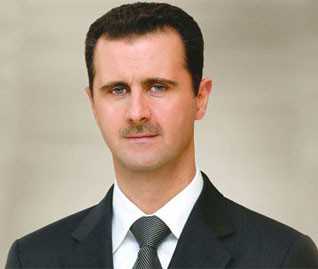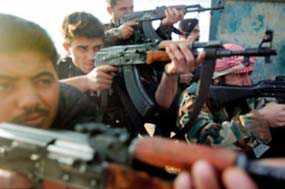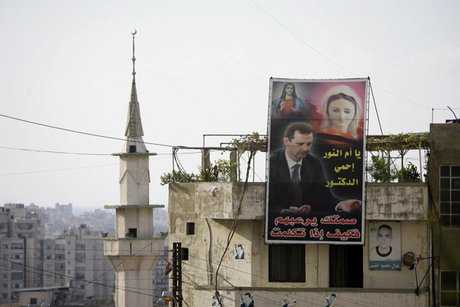By Samia Nakhoul
Reuters
Turkey, with strong backing from its Arab and Western allies, very much wants Syrian President Bashar Al-Assad to step down — but not just yet.
Under Prime Minister Tayyip Erdogan and his post-Islamist ruling party, Turkey has become the main organizing hub for Syria’s opposition — the 260-member liberal Syrian National Council, and the Free Syrian Army, comprising mainly army defectors.
But across the region and in Western capitals there are fears that Assad’s opponents are not ready to take power, and that Syria’s ethnic and sectarian mosaic could disintegrate and plunge the country of 22 million into chaos unless a way is found to smooth the transition.
“The key priority is for the opposition inside and outside (Syria) to come together, become a more credible option and include all sects and get their coordination right. Turkey is working on that,” a senior Western diplomat in Ankara told Reuters.
“What worries them is that if Assad went today there will be more chaos, more destruction and they don’t know who will emerge and they want the opposition to be ready.”
The main worry, Syria watchers say, is that what began nine months ago as a civic uprising is turning into a shooting war capable of spilling into a lethal sectarian conflict.
While Ankara has publicly warned Damascus against encouraging the Kurdistan Workers Party (PKK) to step up its attacks, and raised the stakes by joining Europe, the United States and the Arab League in sanctions against the Assad government, most observers believe Turkey is extremely reluctant to take any military action.
“I don’t expect any military action by the Turkish government unless there is an international consensus and a UN Security Council resolution or NATO operation,” says Mustafa Akyol, author of “Islam without extremes: a Muslim case for Liberty”.
“They will be more concerned about the Kurdish situation in Syria, because the PKK has a lot of Syrian Kurds in its ranks…and the government believes that Assad is supporting right now the PKK against Turkey”.
Sinan Ulgen, a former Turkish diplomat now head of the liberal EDAM think-tank in Istanbul, says Ankara is wary of any rerun of a decade ago, when Kurdish refugees from Saddam Hussein streamed over the Turkish border in the aftermath of the Gulf War, and might now move to create a safe haven or humanitarian corridor inside Syria.
The US, France, and Turkey are on the same wavelength, said Ulgen, but Turkey would still want a Security Council resolution, and regional as well as NATO support to go ahead.
In a surprising move, Russia, Damascus’ longstanding ally, offered the Security Council on Thursday a new, stronger draft resolution on Syria, raising Western hopes of UN action following a sharp rise in sectarian killing.
The Western diplomat, by contrast, thinks Turkey would be reluctant to create a humanitarian safe haven because this would commit Turkish troops in Syrian territory.
“They will open their facilities and provide a humanitarian response but I don’t think they will intervene, and nor do they want anybody else to intervene,” he said. “I don’t think Turkish troops want to cross into Syria.”
Another Western diplomat in Ankara also doubts there will be military intervention, believing instead that sanctions, which are draining the resources of Assad and eroding his position, will be ratcheted up. __
via Saudi Gazette – Turkey seeks way out for Assad.
 Syrian President Bashar Assad, who has met in Damascus with members of the Turkish political party Saadet, said that “no one can influence” the ties between the two nations, the official Syrian Arab News Agency reported.
Syrian President Bashar Assad, who has met in Damascus with members of the Turkish political party Saadet, said that “no one can influence” the ties between the two nations, the official Syrian Arab News Agency reported.



